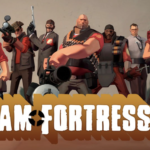[bannerTop]
Welcome to our Win32/Herz.b Virus removal guide. The following instructions will aid you in removing the unwanted software from your PC.
Trojan Horse viruses are undoubtedly some of the most dangerous software threats that your PC can get infected with. They are not only very difficult to detect but can also be used for many different illegal purposes, which is what makes them one of the most popular types of malware. Our goal in the next several paragraphs is to introduce you to a newly created Trojan horse virus that is known under the name of Win32/Herz.b Virus. We will explain to you how you can spot the malware if it gets onto your PC and what it could potentially be used for. Additionally, we will give you several tips on how to make your machine safer and less likely to be attacked by a Trojan. In case the virus has already made its way inside your PC, we can help you remove it. There is a manual guide at the bottom of this article were we have explained what one needs to do in order to eliminate a Trojan horse threat, so we advise you to go there after reading this article if the malicious virus is currently messing with your PC.
Detection issues
Trojan horses are notorious for their ability to remain hidden and unnoticed once they get inside a computer. Most of the time, there will be little to no symptoms that would indicate the malware’s presence. In order to stand a chance at detecting a Trojan, it is mandatory that you have a reliable and fully updated anti-virus program. This is one of the most important things to consider when trying to make your machine safer and better protected. Therefore, if you don’t have some sort of software protection on your machine, you might want to consider getting an antivirus/anti-malware program.
- Even though there are oftentimes no symptoms whatsoever, we still ought to mention some possible indications that might help you manually spot a Trojan horse such as Win32/Herz.b.
- For example, something that most types of malware are known for is that they require high amounts of CPU time and virtual memory in order to function. Therefore, should you notice that your machine is using unusually high amounts of system resources such as CPU and RAM, know that it might have been infected by some dangerous piece of malware.
- BSOD (Blue Screen of Death) crashes are another issue that is commonly related to Trojan horse attacks. Even though such crashes might get caused by a whole lot of other problems, it is still conceivable that a virus like Win32/Herz.b might be the actual reason behind a BSOD crash.
- Trojans could really mess with your computer’s system, so if you notice that anything’s been changed without your permission (for example, a moved, renamed or deleted file or folder), then you might indeed be dealing with a Trojan horse.
What can Trojans do?
As we stated earlier, Trojan horses are some of the most versatile types of malware and there are very many ways in which they could be used. Here, we will only mention the most commonly encountered uses of a typical Trojan, but know that this is only to give you a general idea about what you might be dealing with if Win32/Herz.b has infected your machine.
- Something that most Trojan horses are capable of doing is messing with your computer’s system by deleting or corrupting important OS files. This could cause all sorts of issues and in many cases might render the PC utterly unusable.
- Trojans can also be used for spying purposes. For example, a virus of this type can track everything you type on your keyboard or look at what’s happening on your screen. Some Trojans go as far as to use your own webcam to spy directly on you.
- An increasingly common use of Trojans like Win32/Herz.b is when they serve as a backdoor for Ransomware. This means that if you land a Trojan, not long after, your machine will also get attacked by a Ransomware virus as well.
- Another possibility is that a Trojan horse takes control over your PC and starts using it for different purposes. It could be used for mining bitcoins or sending out spam messages or something else and you wouldn’t be able to do anything about it as long as the virus stays on the PC.
Security
We understand that you want to keep your machine safe, which is why we want to share a couple of tips that will greatly reduce the chance of you landing a Trojan horse virus in the days to come.
- As we already said it, it is very important that you always have a good antivirus program on your PC. Keep it constantly enabled and make sure it has its latest updates installed at all times.
- You need to be very careful when browsing the Internet. If you think that a website seems shady and could have something hazardous throughout its pages, make sure that you stay away from it.
- Junk mail is something we all encounter and if you are not careful with it, you might end up landing some malicious virus like Win32/Herz.b. Try to determine whether a new message is spam before interacting with it and in case it looks suspicious to you, simply delete it without interacting with it.
- If some sketchy ad, banner or an online offer gets displayed onto your screen while you are browsing, make sure that you do not click on it. Those are very commonly used for spreading all sorts of unwanted and sometimes even dangerous software.
Win32/Herz.b Virus Removal
[bannerMiddle]
I – Uninstallation
- Use the Winkey+R keyboard combination, write Control Panel in the search field and hit enter.

- Go to Uninstall a program under Programs.

- Seek the unwanted software, select it and then click on Uninstall
- If you are unable to spot Win32/Herz.b, search for any unrecognized programs that you do not remember installing on your PC – the unwanted software might disguise itself by going under a different name.
II – Safe mode and revealing hidden files
III – Removing Shady processes
[bannerMiddleSecond]
- Go to your start menu, type Task Manager in the search field and from the results open View running processes with Task Manager.

- Thoroughly look through all processes. The name Win32/Herz.b might not be there, but if you notice any shady looking process that consumes high amounts of memory it might be ran by the unwanted program.
- If you spot the process ran by Win32/Herz.b, right-click on it, open its file location and delete everything in there. Then go back to the Task Manager and end the process.

- Use the Winkey+R keyboard combination, write Control Panel in the search field and hit enter.





Leave a Reply